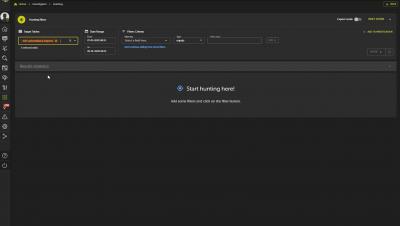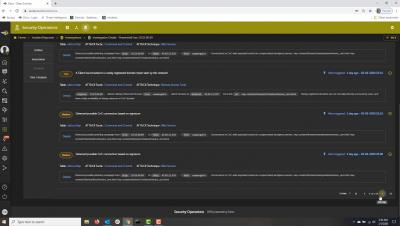Security | Threat Detection | Cyberattacks | DevSecOps | Compliance
%term
Devo Security Operations - Alert Triage
Devo Security Operations - Investigations
Puerto Rico government falls for $2.6 million email scam
As if Puerto Rico wasn’t having a hard enough time as it attempts to recover from a recession, the damage caused by devastating hurricanes in recent years, and a damaging earthquake last month, it now finds itself being exploited by cybercriminals. According to media reports, the government of the US island territory has lost more than US $2.6 million after falling for the type of email scam that has plagued companies and organisations around the world.
MOSE: Using Configuration Management for Offensive and Defensive Security
Post-exploitation can be one of the most time-consuming but worthwhile tasks that an offensive security professional engages in. Fundamentally, it is where you are able to demonstrate what an adversary may do if they compromise a business. A big component of this is trying to get as far as you can without alerting the defenders to what you’re doing.
Playing defense against Gamaredon Group
For several months, the Intelligence & Analytics team at Elastic Security has tracked an ongoing adversary campaign appearing to target Ukranian government officials. Based on our monitoring, we believe Gamaredon Group, a suspected Russia-based threat group, is behind this campaign. Our observations suggest a significant overlap between tactics, techniques, and procedures (TTPs) included within this campaign and public reporting.
Customizing Errors in Node.js
Javascript's built in Error provides useful information, but can often feel lacking in clarity. One-size-fits-all is great for the language, but we can do better in our own apps. That's where custom errors come in.
Redscan a winner at TEISS Awards 2020
It was a successful night for Redscan at the TEISS Awards 2020, with the company receiving honours for two of its key services.
CCPA Exemptions: The California Consumer Privacy Act and the Gramm-Leach-Bliley Act
A change is coming for privacy protection. Are you ready? For the past twenty years, most financial services businesses fell under the requirements of the Gramm-Leach-Bliley Act (GLB Act or GLBA). This law federally governed the collection and disclosure of customers’ personal financial information. However, on January 1st, 2020, a new privacy rule—the California Consumer Privacy Act (CCPA)—wentis going into effect.










